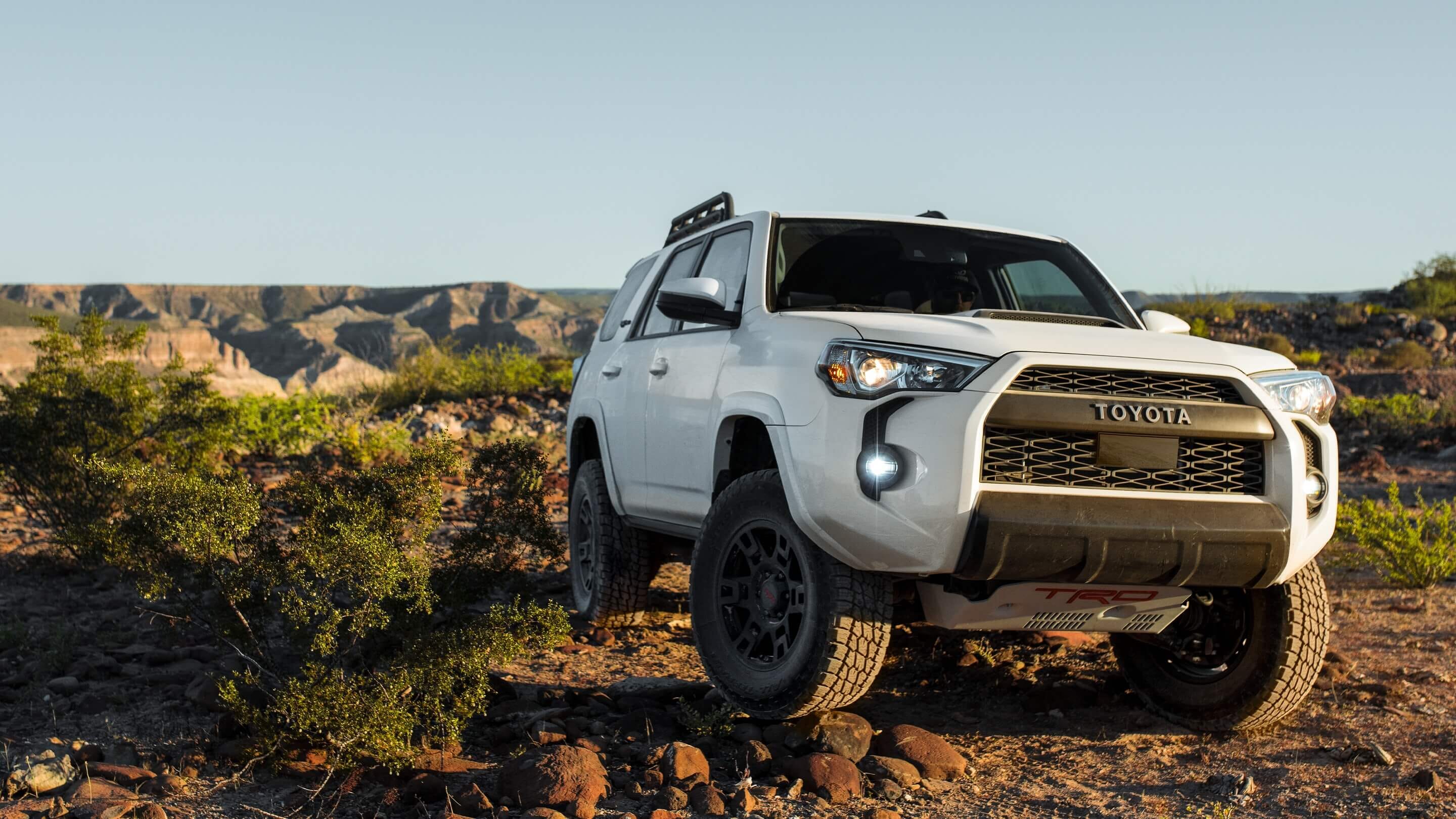Navigating the Terrain: A Comprehensive Guide to Leasing a New Toyota 4Runner
Related Articles: Navigating the Terrain: A Comprehensive Guide to Leasing a New Toyota 4Runner
Introduction
With enthusiasm, let’s navigate through the intriguing topic related to Navigating the Terrain: A Comprehensive Guide to Leasing a New Toyota 4Runner. Let’s weave interesting information and offer fresh perspectives to the readers.
Table of Content
Navigating the Terrain: A Comprehensive Guide to Leasing a New Toyota 4Runner

The Toyota 4Runner, a rugged and reliable SUV, has consistently earned its place in the hearts of adventurers and families alike. For those seeking the benefits of driving a 4Runner without the commitment of ownership, leasing presents an attractive alternative. This comprehensive guide delves into the intricacies of leasing a new Toyota 4Runner, providing insights into its financial implications, key considerations, and advantages.
Understanding the Basics of Leasing
Leasing a vehicle involves renting it for a predetermined period, typically two to five years, with monthly payments. At the end of the lease term, the vehicle is returned to the dealership. Unlike purchasing, leasing does not involve ownership. However, it offers a more flexible and potentially cost-effective way to drive a new car.
Why Lease a Toyota 4Runner?
- Lower Monthly Payments: Leasing often results in lower monthly payments compared to financing a purchase. This is because only a portion of the vehicle’s value is financed over the lease term.
- Access to Newer Models: Leasing allows you to drive a new car every few years, keeping you up-to-date with the latest features and technology.
- Predictable Costs: With fixed monthly payments and a defined lease term, leasing provides budget predictability.
- No Depreciation Concerns: Leasing eliminates the burden of vehicle depreciation, as the residual value at the end of the lease is factored into the monthly payments.
- Flexibility: At the end of the lease term, you have the option to return the vehicle, lease a new one, or purchase it if desired.
Key Factors to Consider Before Leasing
- Lease Term: The length of the lease (typically 24, 36, or 48 months) impacts your monthly payments. Longer terms generally result in lower monthly payments but a higher total cost over the lease period.
- Mileage Allowance: Most leases come with an annual mileage limit. Exceeding this limit incurs additional charges.
- Residual Value: The estimated value of the vehicle at the end of the lease, known as the residual value, influences the monthly payment. A higher residual value generally translates to lower monthly payments.
- Lease Buyout Option: If you decide to purchase the vehicle at the end of the lease, you can exercise the buyout option. The buyout price is typically the residual value plus any applicable fees.
- Maintenance and Wear and Tear: Leasing agreements usually stipulate responsibility for routine maintenance and wear and tear. Be sure to familiarize yourself with the terms to avoid unexpected charges.
Navigating the Lease Process
- Determine Your Budget: Establish a realistic monthly budget for your lease payments. Consider factors such as your income, expenses, and financial goals.
- Research Lease Offers: Compare lease offers from different dealerships and lenders. Pay close attention to the monthly payments, lease term, mileage allowance, and residual value.
- Negotiate the Terms: Don’t hesitate to negotiate the lease terms with the dealership. This includes the monthly payment, lease term, and any additional fees.
- Review the Lease Agreement: Thoroughly review the lease agreement before signing. Ensure you understand all the terms and conditions, including the mileage allowance, wear and tear provisions, and any early termination fees.
- Obtain Insurance: Obtain comprehensive and collision insurance to protect yourself from financial liability in case of an accident.
Frequently Asked Questions about Leasing a Toyota 4Runner
Q: Is leasing a Toyota 4Runner a good financial decision?
A: Whether leasing is financially advantageous depends on your individual circumstances and driving habits. Consider your budget, mileage needs, and long-term plans. If you prefer driving a new car every few years and value flexibility, leasing may be a good option. However, if you plan to keep a vehicle for a long time and value ownership, financing a purchase might be more suitable.
Q: What is the typical lease term for a Toyota 4Runner?
A: Lease terms for Toyota 4Runners typically range from 24 to 48 months. The ideal term depends on your budget and driving needs.
Q: How much is the monthly payment for a Toyota 4Runner lease?
A: The monthly payment varies depending on factors such as the trim level, lease term, mileage allowance, and residual value. It’s best to contact a dealership for a personalized quote.
Q: What happens if I exceed the mileage allowance on my lease?
A: Exceeding the mileage allowance will result in additional charges per mile. The exact cost varies based on the lease agreement.
Q: Can I customize a leased Toyota 4Runner?
A: While some customizations may be allowed, it’s essential to discuss any modifications with the dealership before making them. Certain alterations might affect the vehicle’s value and potentially incur additional charges at the end of the lease.
Tips for Leasing a Toyota 4Runner
- Shop Around: Compare lease offers from different dealerships to find the best deal.
- Consider the Residual Value: A higher residual value generally leads to lower monthly payments.
- Negotiate the Terms: Don’t be afraid to negotiate the lease terms with the dealership.
- Read the Fine Print: Thoroughly review the lease agreement to understand all the terms and conditions.
- Maintain the Vehicle: Keep the vehicle clean and in good condition to avoid potential charges at the end of the lease.
Conclusion
Leasing a Toyota 4Runner offers a compelling alternative to purchasing, providing a flexible and potentially cost-effective way to enjoy the rugged capabilities and versatility of this popular SUV. By carefully considering the factors outlined in this guide, understanding the intricacies of the lease process, and negotiating favorable terms, you can navigate the terrain of leasing with confidence and make an informed decision that aligns with your individual needs and financial goals.








Closure
Thus, we hope this article has provided valuable insights into Navigating the Terrain: A Comprehensive Guide to Leasing a New Toyota 4Runner. We hope you find this article informative and beneficial. See you in our next article!